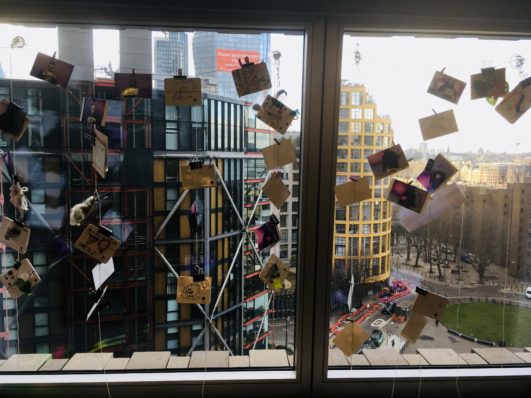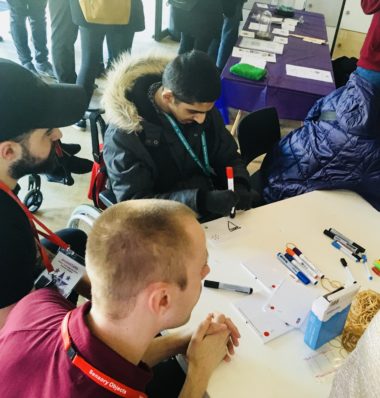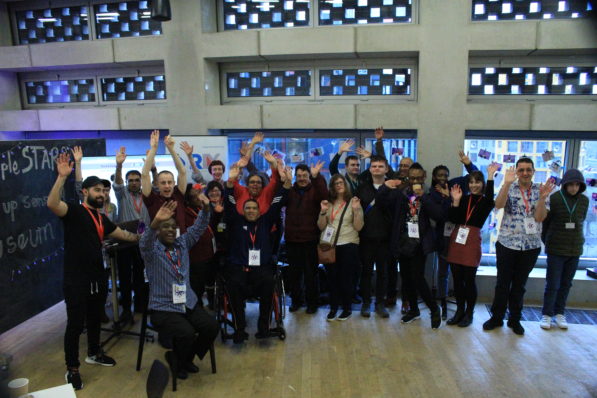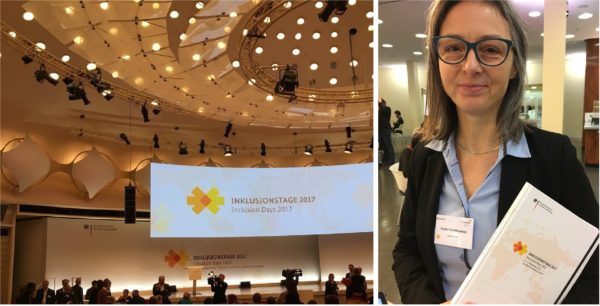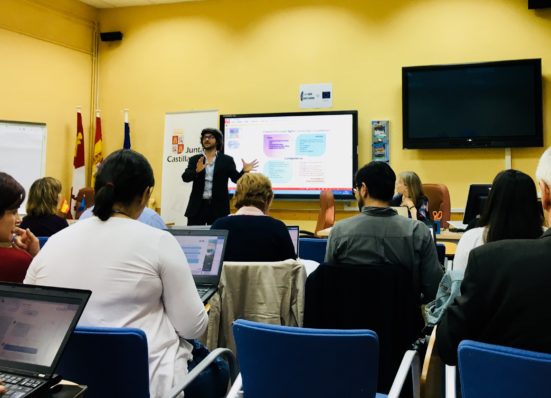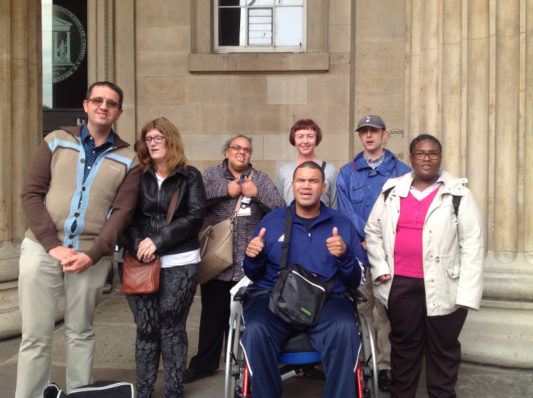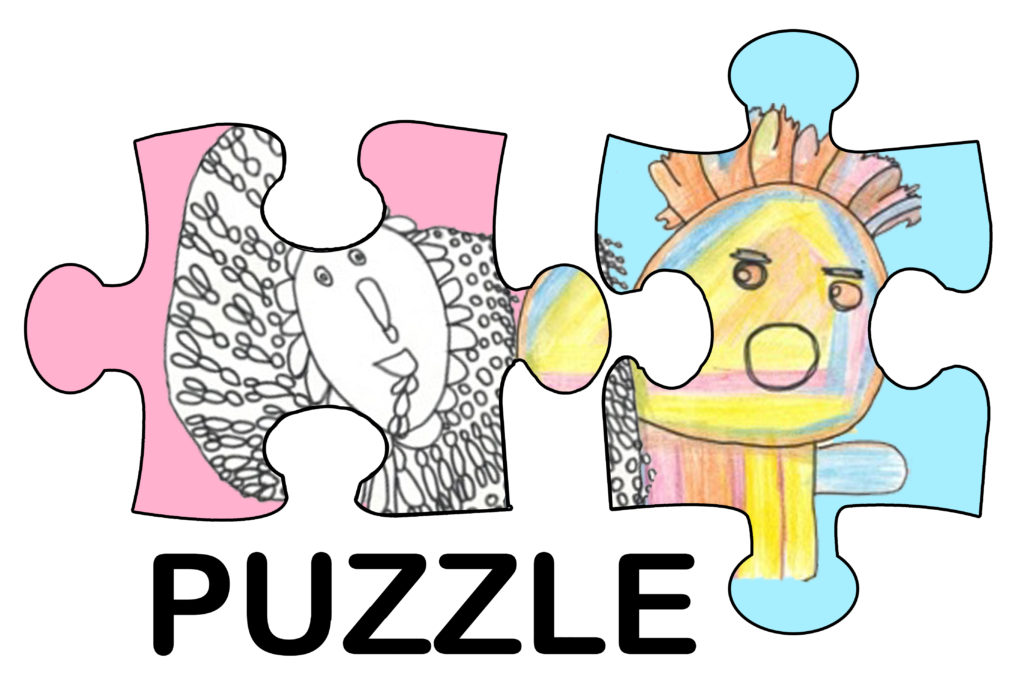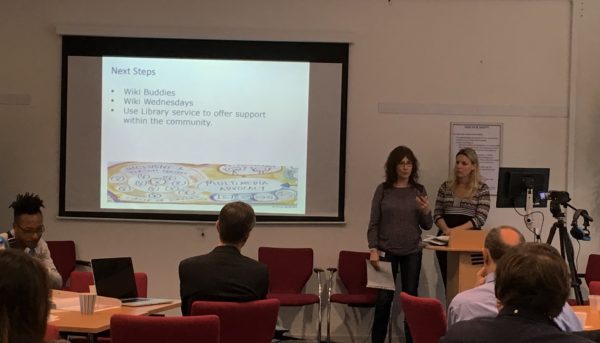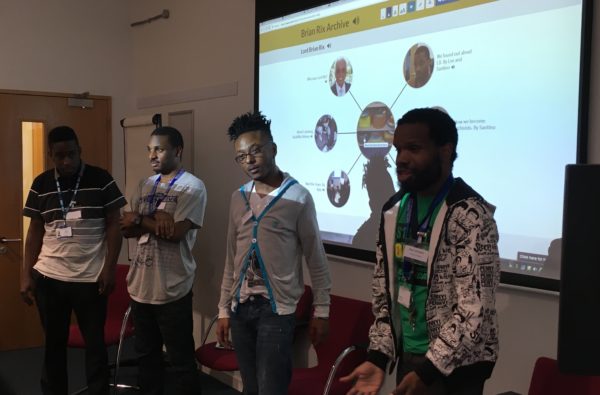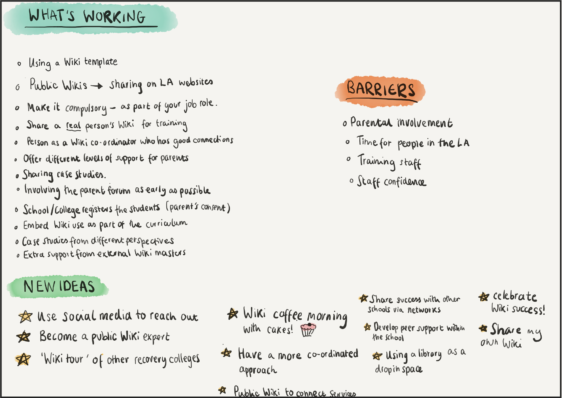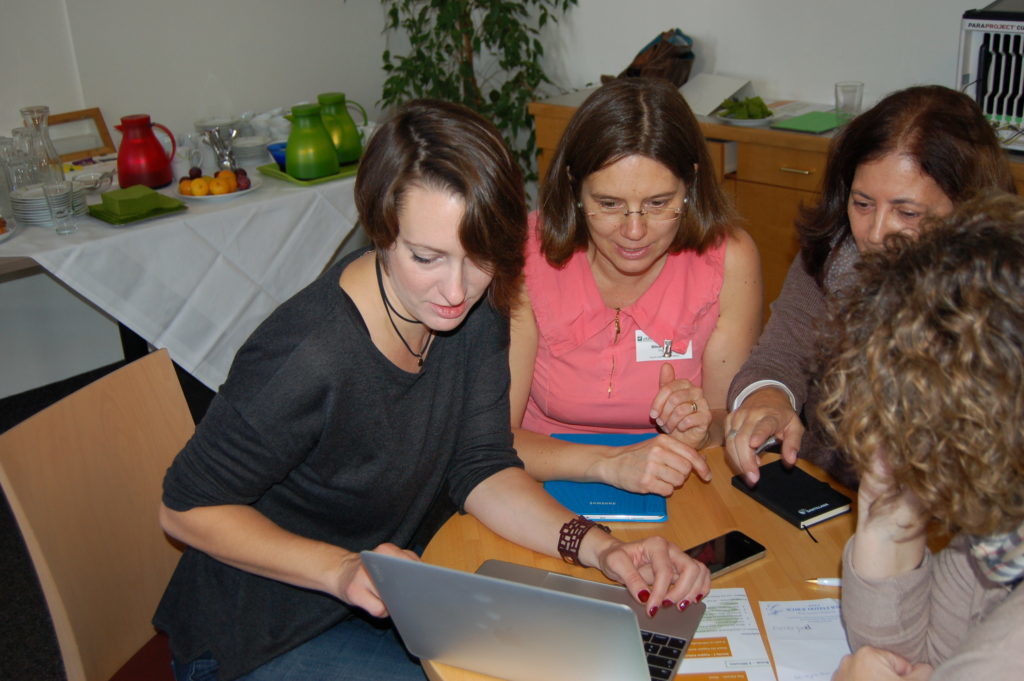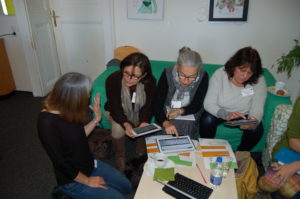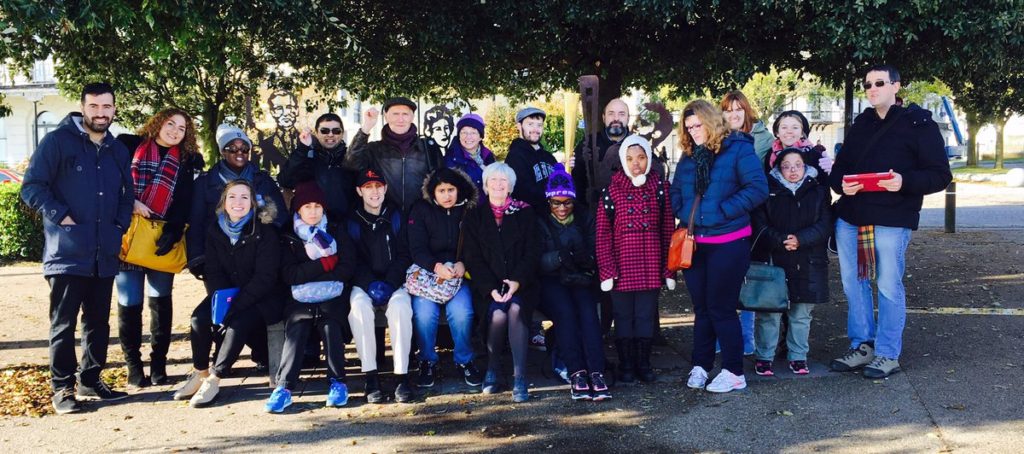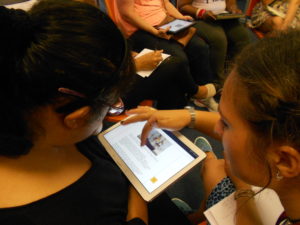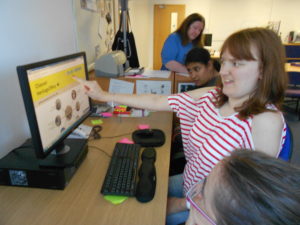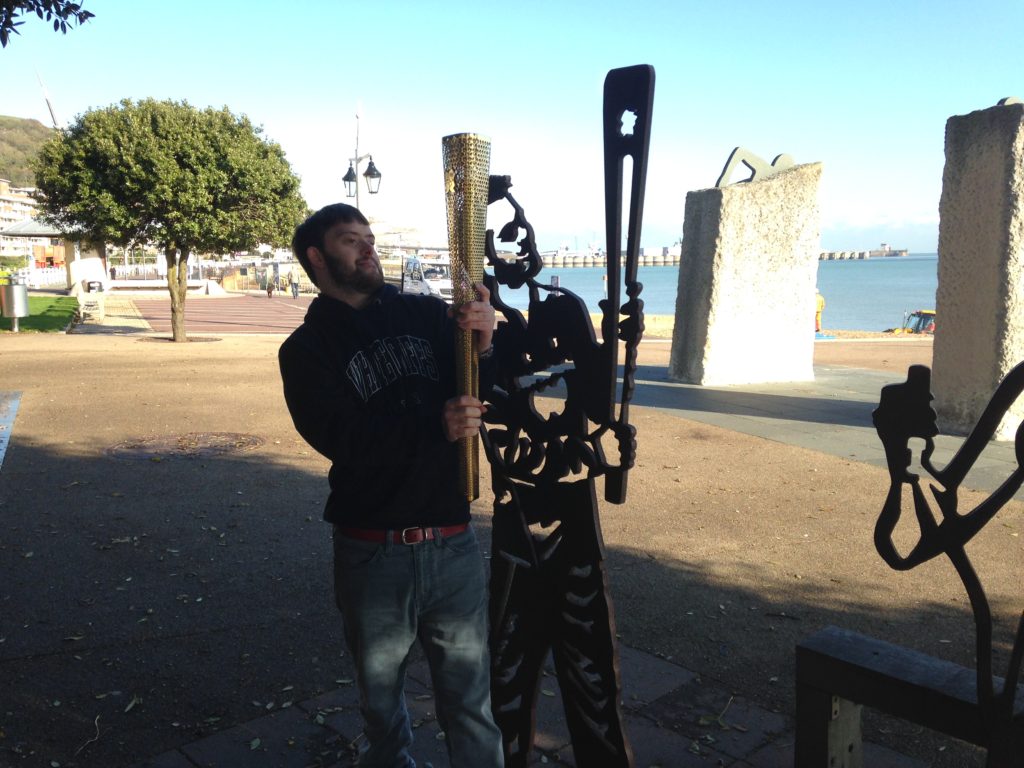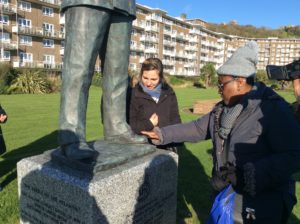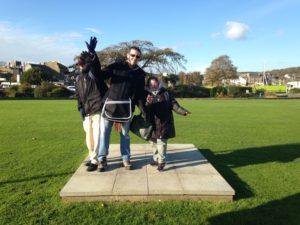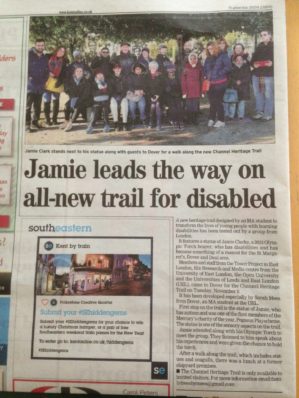Actress Sally Phillips was hosted by the Rix Research & Media team this week and introduced to our Rix Wiki software, when she made a public appearance at UEL on Monday to talk about her career and her advocacy work for people with Down’s.
Sally is well known for her role in TV and Film, including Smack the Pony, Miranda and Bridget Jones Diary. She is also a mother of Olly, who has Down’s Syndrome and is a passionate advocate for people with Down’s. Sally produced and hosted a BBC Documentary called ‘A World Without Downs’ in 2015, which challenges the whole set of assumptions behind the pre-natal screening for Down’s and what this reflects about the way our society and the medical establishment views people with this condition. Ms Phillips received an honorary doctorate from UEL in November 2017, in recognition of her high profile advocacy work for people with Down’s.
Following her presentation, which was chaired by the Rix Director, Professor Andy Minnion, Sally joined the Rix team and some of our Wiki Champions at the Rix Centre and learned about our work. Ms Phillips met with Rix staff and Rix Wiki Champion, Claire Watts, whose son Alfie also has Down’s Syndrome. Alfie has learned how to build his own Rix Wiki and this helps him to share his life, his interests and achievements and communicate his needs and aspirations with teachers and the various other professionals that work with him.
Claire used her son’s Wiki to present Alfie’s story to Ms Phillips and show how the Wiki helped to improve the way in which her son is supported and perceived as an individual. Her presentation clearly resonated with Sally and echoed some of her own experiences.
Ms Phillips was impressed by the Rix Wiki tool and said that she felt her son Olly would love to have one of his own. We look forward to seeing how Olly, his mother and his family get on with Rix Wikis over the coming months. Watch this space!


